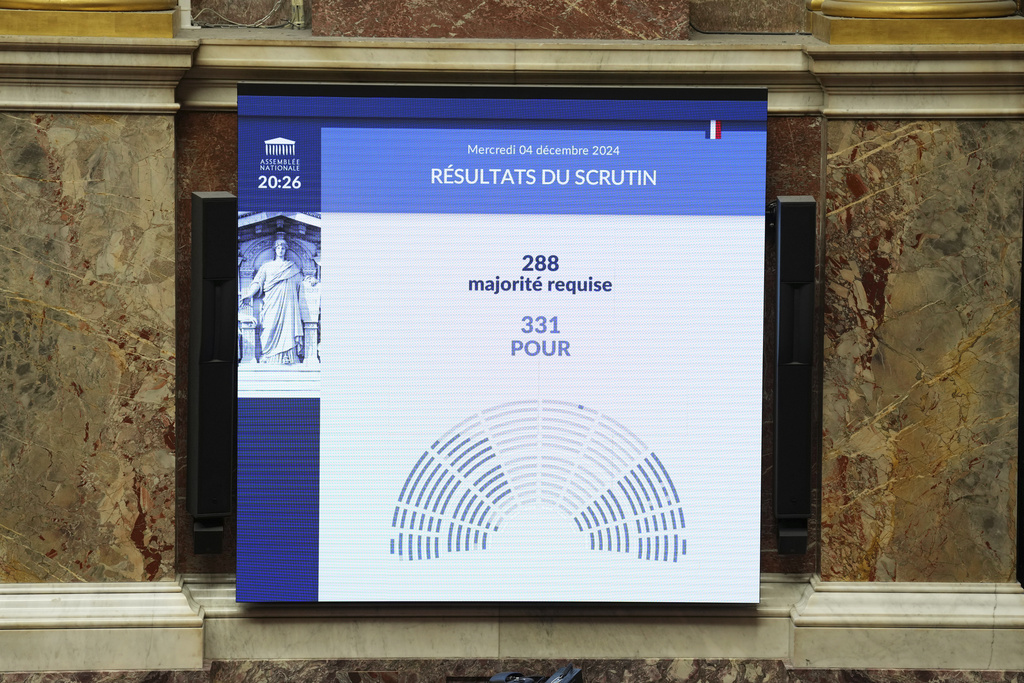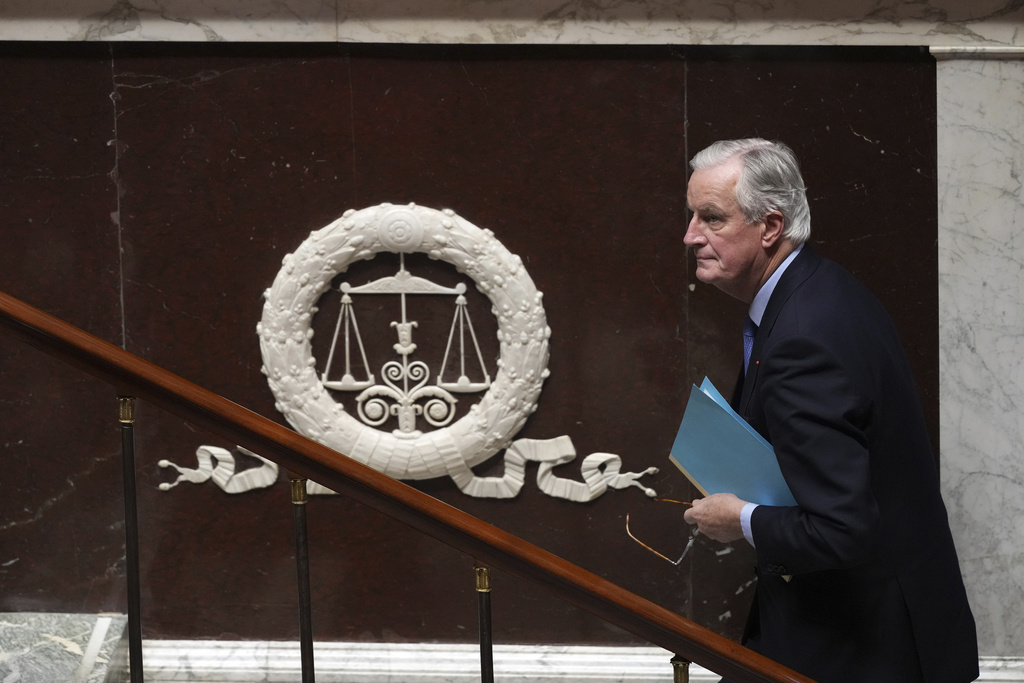Michel Barnier’s minority French government was ousted on Wednesday after being defeated in a vote of no confidence in the National Assembly — making him the shortest-serving French prime minister in modern history and the first to be toppled in such a fashion since 1962.
The motion of no confidence passed with 331 out of 574 lawmakers supporting it, surpassing the required 288 votes. The opposition, including Marine Le Pen’s right-wing National Rally and leftist parties, united to bring down Barnier after the Macron-appointed centrist politician sought to push through his proposed social security budget for next year without parliamentary approval.
The budget aimed to implement €60 billion in spending cuts and tax increases to address France’s deficit, soon projected to exceed 6 percent of GDP.
BREAKING: 🇫🇷 The French government. pic.twitter.com/edF9uikj9a
— Remix News & Views (@RMXnews) December 4, 2024Barnier is now obliged to tender his resignation, giving President Emmanuel Macron a headache ahead of a visit by U.S. President-elect Donald Trump at the weekend.
The collapse of the French government coincides with political instability in Germany where federal elections are due to be held in February — leaving the European Union’s two-largest economies in turmoil ahead of Trump’s return to the White House next month.
The French president also faced calls to resign by some lawmakers in the chamber on Wednesday, including left-wing La France Insoumise (LFI) MP Mathilde Panot, but insisted he would see out his term which ends in 2027.
Macron must now seek to appoint a new prime minister capable of navigating a fragmented parliament; however, many of the same problems will remain and new parliamentary elections cannot be called until next July.

The last prime minister to lose his job by a motion of no confidence was Georges Pompidou back in 1962.
Addressing parliamentarians, Barnier admitted that mistakes had been made during his short tenure, but told lawmakers that his ousting would not magically solve the problems France faces.
“We have reached a moment of truth and a moment of responsibility. I acknowledge that the draft budget text was not perfect — that we did not do everything right from the start,” he said.
“I stood before you to tell you that the French people would not forgive us if we do not act, and that our Republic is fragile … and that our citizens, our compatriots, are asking us to overcome our divisions, to act in the greater interest.
“What I am sure of, what I say with gravity before you, is that this motion will make everything more serious and more difficult,” he added, ending by saying it had been an honor to “have served France and the French with dignity.”
Earlier in the debate, nationalist firebrand Marine Le Pen had offered a scathing assessment of Barnier’s minority government, claiming it had been “devoid of any democratic foundation.”
She accused Barnier himself of “intransigence, sectarianism, and dogmatism,” and said his proposed austerity budget had “no direction or vision,” was technocratic, and made no attempt to “touch the totem that is out-of-control immigration.”
“It is a budget that takes the French people hostage — particularly the most vulnerable: low-income retirees, sick people, poorer workers, those French people too rich to be helped, but not poor enough to escape being hammered by taxes,” Le Pen added.
Politicians from the left-wing New Popular Front (NFP) had different reasons for opposing Barnier’s budget – accusing him of cozying up to the far-right in an attempt to push it through – but reached the same outcome as their political adversaries when it came to the prime minister’s future.
Cyrielle Chatelain, the leader of the Green party’s parliamentary group, confirmed her cohort would vote against Barnier because it “continues to hope that something better is still possible.”
“Your mistake, Mr. Prime Minister, is to have believed that Marine Le Pen would allow you to pass a budget,” she said, adding that the no-confidence motion was “about giving France the possibility of having a government that implements the policies that the French people deserve, policies that respect them and respond to their needs and expectations.”
The Élysée Palace will now be on the lookout for a replacement to bring some form of stability back to the hung parliament. When asked when a new appointee will be made and whether there are any frontrunners, a spokesperson from the presidential office replied, “Nothing has been decided.”






